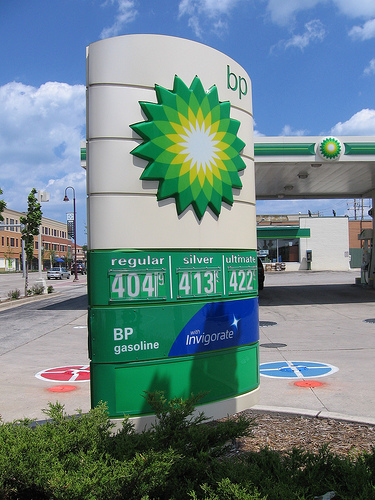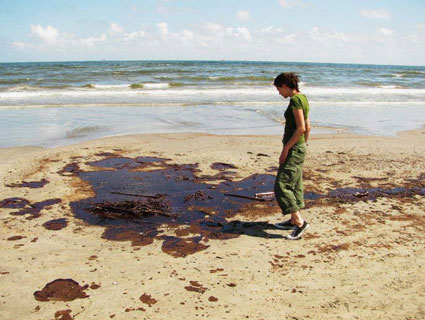On Tuesday, the Environmental Protection Agency announced an unprecedented fine against BP’s Alaskan division for spilling 5,078 barrels of oil from a pipeline in 2006. Yes, that other big oil spill problem BP had before they trashed the Gulf of Mexico. The fine—$25 million—is the highest civil per-barrel penalty to date.
It works out to $4,923 for each barrel of oil the company spilled—which is higher than the standard penalty, the EPA explains, because it also includes fees for violating both the Clean Air Act and the Clean Water Act. The maximum fine is usually $4,300 per barrel for Clean Water Act violations, imposed when a company is found grossly negligent for a spill. The agreement, hashed out by the EPA, the Department of Justice and the Department of Transportation’s Pipeline and Hazardous Materials Safety Administration, also requires BP to set up a $60 million system-wide pipeline integrity management program.
The question for me is whether this fine sets a precedent for BP’s other big spill. The company dumped 4.9 million barrels of crude if the Gulf. If the company is deemed grossly negligent in the disaster, BP could face up to $21 billion fines for Clean Water Act violations alone. Then there’s the Natural Resources Damage Assessment process, in which the feds survey the damage to ecosystems and levy a fee for restoration to the responsible party. That’s on top of the $20 billion in compensation for residents and businesses that BP already agreed to put into an escrow account.
All told, it could add up to quite a bit for BP if the government is aggressive in its penalties. But whether the government will be is still an open question.














